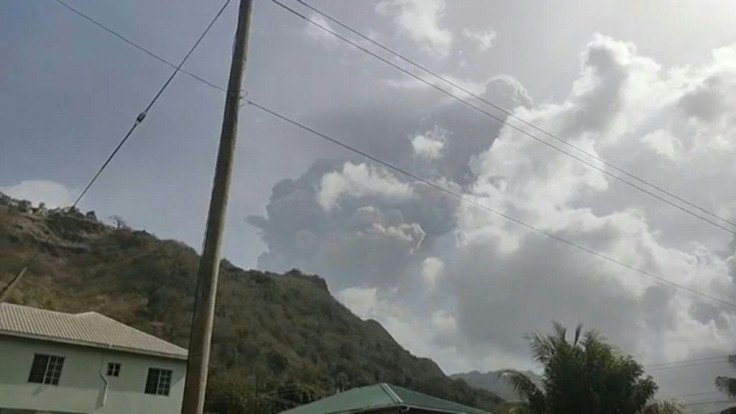VIDEO St. Vincent Volcano Footage Shows Debris Hurled Miles Into The Sky
The residents of St. Vincent island in the Caribbean continue to wait Sunday to learn if the La Soufrière volcano will produce a larger eruption after Friday’s initial explosion. More severe explosions could continue for days or even weeks and the effects of the destruction could last months.
Roughly 20,000 of the island residents fled the volcano's area Thursday after Prime Minister Ralph Gonsalves ordered a full evacuation. The country has received help from other Caribbean neighbors, and evacuees have taken refuge on cruise ships.
Recent video footage — some of the content has come from residents' cellphones — revealed the destruction of the volcano on its third day. Clouds of ash have reached about six miles skyward, while residents have been subjected to extreme darkness.
The two explosions on Friday caused ash and soot to fill the air and some ash even traveled all the way to Barbados. Gonsalves said on Saturday that there are plans for a cleanup operation.
Those ash particles are not only difficult to remove but could also become dangerous when inhaled.
There is fear that the worst is yet to come.
"The explosive eruption has started and it is possible you could have more explosions like these," Richard Robertson, a geologist with the University of the West Indies Seismic Research Centre, said at a press conference. "The first one is not necessarily the worst one, the first bang is not necessarily the biggest bang this volcano will give."
Ash falls like snow after volcano eruption in St Vincent https://t.co/NipQP8Ao8l pic.twitter.com/CVeZHIXJDH
— BBC News (World) (@BBCWorld) April 11, 2021
La Soufrière last erupted in 1979 and it lasted a few weeks but didn’t cause any deaths. Robertson believes the next eruption it releases this time will be larger than the one in 1979.
St. Vincent and the Grenadines has a population of about 110,000. The island of Saint Vincent has an area of 133 square miles.

© Copyright IBTimes 2025. All rights reserved.





















